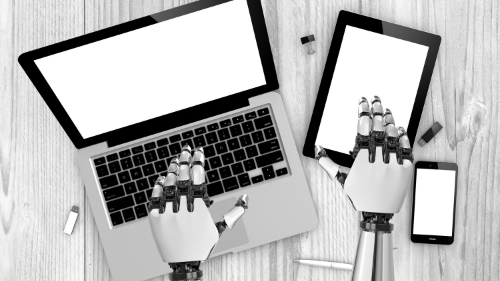Artificial Intelligence and Its Impact on Our Emotions
Artificial intelligence is no longer part of a futuristic movie. It is
present in everyday life, in algorithms that suggest what to watch, what to
buy, or what to think. And although it can facilitate many tasks, its influence
goes far beyond technology. It also touches our emotions, self-esteem, and the
way we connect.
One of the Most Evident Impacts is the Relationship
with External Validation
Social media, driven by artificial intelligence, shows content based on
what retains you the most. This feeds constant comparison, as images and
lifestyles that generate admiration or envy are prioritized. Without realizing
it, we start measuring our value by likes, comments, or visibility. And when
that does not happen, frustration, insecurity, and the feeling of not being
enough appear.
It Also Influences How We Make Decisions
Virtual assistants, personalized recommendations, and content filters
shape what you see, believe, and consume. This reduces autonomy, as we stop
exploring with curiosity to follow what the algorithm proposes. And when this
happens, spontaneity is limited, and the connection with what you truly desire
weakens.
Artificial Intelligence Also Changes How We Relate
Conversation bots, virtual relationships, dating apps that suggest
partners based on patterns appear. While these tools are useful, they generate
more superficial bonds, where real connection is replaced by an illusion of
interaction.
Another Important Aspect is the Effect on Attention
and Emotional Well-Being
Overexposure to information, stimuli, and constant notifications
generates anxiety, mental fatigue, and difficulty being present. Your nervous
system stays on alert, and that affects your ability to rest, concentrate, and
self-regulate.
This Does Not Mean Artificial Intelligence is Negative
by Itself
The problem is how we use it and how much we allow it to influence what
we feel, think, and do. The key is to develop conscious use, where you decide
what content to consume, when to disconnect, and how to protect your emotional
well-being.
Practice the Pause
Choose moments without screens. Learn to identify what type of content
generates anxiety, what truly inspires you, and what only feeds the noise. And
if you feel technology is impacting your mental health, talk to a professional.
There are ways to regain control and return to yourself.
Because Although Artificial Intelligence Advances,
Your Humanity Remains the Most Valuable Thing You Have.



